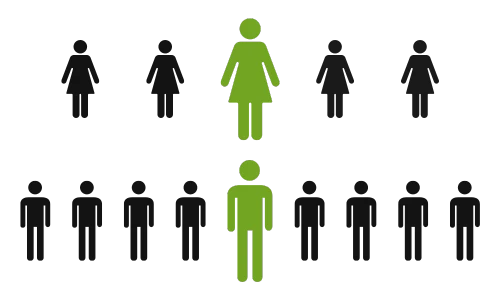WELCOME TO MY
Family and Domestic Violence Counselling
Empowering Change, Ending Violence.
UNDERSTANDING DFV
What Is Domestic Violence Counselling?
Domestic and family violence is a pattern of behaviour in any relationship used to gain or maintain control over an intimate partner or family member. These actions can intimidate, frighten, terrorise, manipulate, blame, or injure someone. While it predominantly affects women, it's important to recognise that men and children are also vulnerable.
The abuse manifests in various forms, and physical injury is not necessary for the behaviour to be classified as domestic violence. It's often more about the consistent patterns that instil fear.

Forms of Abuse Include:
Emotional and Psychological Abuse
Undermining an individual's sense of self-worth through constant criticism, diminishing one's abilities, name-calling, or damaging one's relationship with their children.
Physical Abuse
This can range from direct physical harm to making someone feel physically unsafe through menacing gestures.
Verbal Abuse
Using words to cause harm, whether through threats, accusations, or demeaning language.
Social Abuse
Isolating someone from their friends and family, monitoring their movements, or controlling who they can see and when.
Financial Abuse
Taking control of finances to make the victim financially dependent. This can include withholding access to money, or the outright theft of funds or credit.
Harassment or Stalking
Consistent attempts to invoke fear through unwanted contact.
Damaging Property
Destroying property to terrorise someone.
Spiritual Abuse
Manipulating someone's spiritual beliefs or practices to control them.
Reproductive Abuse
Exerting power over an individual's reproductive health decisions.
Systems Abuse
Exploiting legal or other institutional mechanisms to harass or control a partner.
Forced Marriage
Marrying someone against their will.
Technology Abuse
Using technology to control, harass, or monitor a partner.

Facts and Figures on Family and Domestic Violence in Australia
Domestic and family violence (DFV) is a pervasive issue that affects millions of individuals across the globe, regardless of socio-economic status, race, religion, or nationality. Understanding the statistics helps underscore the urgency and necessity of comprehensive support systems, such as counselling and intervention programs.
Here are some key facts and figures to understand the extent and impact of DFV in Australia:
Prevalence
According to the Australian Institute of Health and Welfare (AIHW), 1 in 6 (17%) women and 1 in 16 (6%) men have experienced physical or sexual violence by a current or previous partner since the age of 15.
Impact on Women
DFV is the greatest health risk factor for women aged 25-44, greater than smoking or obesity. Furthermore, women are nearly three times more likely than men to experience violence from an intimate partner.
Effects on Children
It is estimated that 1 in 6 women and 1 in 9 men were subjected to physical or sexual abuse before the age of 15. Exposure to family violence poses significant risks to children's emotional, cognitive, and social development.
Fatal Outcomes
On average, one woman a week is murdered by her current or former partner, contributing to a significant portion of homicide incidents in Australia, according to the Australian Bureau of Statistics.
Economic Impact
The economic cost of violence against women and their children in Australia was estimated to be $22 billion annually, as reported by KPMG. This includes costs related to healthcare, lost productivity, and social welfare.
Reporting Rates
Many instances of domestic violence go unreported. Barriers to reporting include fear of not being believed, fear of further violence, concerns over child custody, financial dependency, and cultural or linguistic barriers.
Ready to Begin Your Journey?
Schedule a Consultation Today
WHY IT IS IMPORTANT
Why Domestic and Family Violence Counselling is Essential
Domestic and family violence counselling plays a crucial role in addressing the deep and lasting impact of abuse. It is vital for individual recovery, safety, and community health.
Victim Support and Safety
Offers a safe environment for victims to express themselves and plan safe exits from abusive situations.
Breaking the Cycle of Abuse
Helps understand and break the patterns of violence, preventing future abuse.
Healing and Recovery
Aids in the emotional and psychological healing process, helping to manage and mitigate long-term effects like PTSD and depression.
Preventing Intergenerational Trauma
Intervenes to help children affected by violence, preventing the cycle from continuing into future generations.
Rebuilding Healthy Relationships
Teaches victims the skills needed to establish and maintain healthy relationships based on respect and effective communication.
Community Awareness and Prevention
Raises public awareness about the signs and effects of abuse, promoting early intervention.
Legal and Social Advocacy
Assists victims in navigating the legal system and accessing necessary social services.


How Intrepid Coaching Can Help?
At Intrepid Counselling, I understand the complexities of trauma and its impact on every aspect of your life. I'm a compassionate counsellor trained in trauma-informed approaches, including EMDR, to help you navigate your healing journey.
With personalised support and evidence-based techniques, I empower you to overcome trauma and thrive.
Personalised Counseling Approach:
Tailored counseling sessions designed to address your unique needs, goals, and experiences.
Trauma-Informed Techniques:
Utilisation of evidence-based approaches such as Eye Movement Desensitization and Reprocessing (EMDR) to help process and integrate traumatic memories.
Strengths-Based Support:
Empowerment-focused counselling helps you recognise and build upon your inherent strengths and resilience.
Holistic Healing Strategies:
Incorporation of holistic modalities and practices to support your emotional, mental, and physical well-being.
Long-Term Recovery Planning:
Collaborative development of a comprehensive treatment plan aimed at fostering long-term healing and growth.

